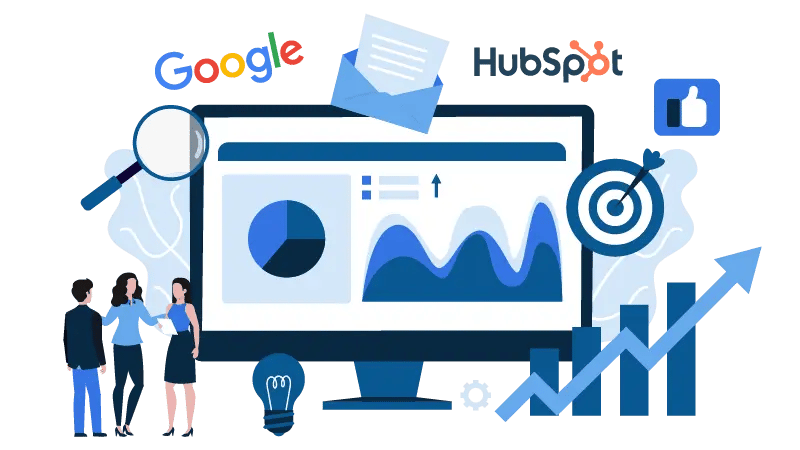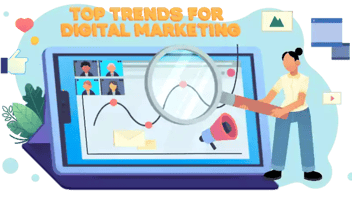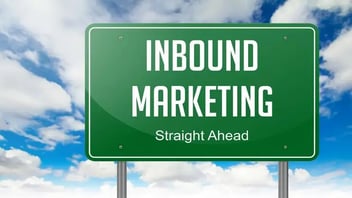Top Digital Tools To Revolutionize Small Business Marketing and Sales
Small businesses are adopting new technology more frequently in the fast-paced digital age of today in an effort to improve client engagement, streamline operations, and spur growth. Digital tools have completely changed the way small businesses run, from sales to marketing, by facilitating the creation of individualized, successful marketing strategies and reaching their target audience.
The following are some of the most important digital tools that are transforming small business marketing and sales.
The Impact of Digital Tools on Customer Engagement
Digital tools have significantly enhanced how small businesses engage with their customers. Through features like personalized communication, automated responses, and data-driven insights, businesses can now tailor their interactions to meet individual customer preferences. This level of customization fosters stronger relationships, builds trust, and ensures a superior customer experience.
1. Digital Business Cards: A Modern Networking Essential
The days of distributing paper business cards, which are frequently misplaced or forgotten, are long gone. Small company owners and entrepreneurs are increasingly using digital business cards, like those provided by Wave Connect and other like sources. Businesses can construct a virtual version of their contact details, such as phone numbers, emails, websites, social media links, and even a profile image or logo, with these digital cards.
Recipients can save the card to their phone or LinkedIn with a quick tap or scan, guaranteeing that the business relationship is preserved in digital form. This offers an environmentally friendly networking solution in addition to saving money on printing. Furthermore, digital business cards are simple to update with fresh details without requiring reprint cards.
2. Customer Relationship Management (CRM) Software
Small firms that wish to build enduring relationships with their customers must implement effective customer relationship management or CRM. Small businesses may log interactions, automate follow-up tasks, and organize customer data with CRM platforms like HubSpot, Zoho CRM, and Salesforce. Business owners can customize their marketing and sales efforts to each individual client by gaining insights into their preferences, actions, and past purchases by compiling customer data in a single, central location.
CRM systems assist small businesses in nurturing prospects and turning them into devoted customers through a variety of strategies, including sales funnels, automated email campaigns, and personalized messaging.
Additionally, many CRM systems offer integrations with social media platforms, email marketing tools, and e-commerce platforms, enabling seamless workflows and a unified approach to customer management.
3. Social Media Marketing and Management Tools
Social networking sites like Facebook, LinkedIn, and Instagram give small businesses a very economical and efficient way to advertise their goods and services. However, monitoring many accounts, providing compelling content, and measuring performance may be time-consuming. Tools for managing social media, such as Hootsuite, Buffer, and Sprout Social, can help with that.
From a single dashboard, these solutions enable small business owners to plan posts, track brand mentions, and examine social media traffic. Businesses may make data-driven decisions thanks to their insights into audience demographics, engagement rates, and the best times to post. Businesses can save time and money while maintaining a consistent online presence by simplifying the social media process.
Additionally, features like hashtag tracking and campaign analytics help businesses refine their strategies and achieve better results.
4. E-Commerce Platforms and Payment Systems
E-commerce platforms like Shopify, Wix, and BigCommerce provide companies that sell goods online with a simple and affordable option to launch an online store. With the help of these platforms' integrated payment processors, inventory management capabilities, and configurable templates, small businesses can create and maintain an online presence without requiring technological know-how.
Further streamlining the transaction process are payment platforms like PayPal, Stripe, and Square, which provide consumers with safe, quick, and easy ways to make payments. Small businesses may boost revenue, reach clients worldwide, and offer a flawless shopping experience with integrated e-commerce solutions.
E-commerce platforms also come with marketing features, such as abandoned cart reminders and discount codes, to help businesses attract and retain customers.
5. Email Marketing Automation
One of the best ways for small businesses to communicate is still through email marketing. Businesses may segment their email lists, automate email campaigns, and monitor the effectiveness of their efforts with the help of digital solutions like Mailchimp, Constant Contact, and ConvertKit.
Small businesses can create a database of potential clients by gathering email addresses from website visitors, social media users, and in-store interactions. Newsletters, event invitations, promotional offers, and customized communications can then be sent via email marketing platforms. Businesses may more easily optimize their campaigns and increase their effect by tracking open rates, click-through rates, and conversions.
Analytics features provide insights into open rates, click-through rates, and conversions, enabling businesses to optimize their campaigns for maximum impact.
6. Search Engine Optimization (SEO) Tools
For small businesses, ranking on the first page of search engine results is crucial in the cutthroat world of digital marketing. Through content optimization, keyword ranking tracking, and site performance analysis, SEO tools such as Google Analytics, SEMrush, Moz, and Yoast assist small company owners in increasing the exposure of their websites.
Businesses can modify their tactics for higher search engine results by using these tools, which offer insightful information on how users discover and engage with a website. Increased brand awareness and sales can result from organic traffic to a website brought about by a solid SEO strategy.
Moreover, local SEO features allow businesses to target customers in specific geographic areas, making these tools especially valuable for businesses with physical locations.
7. Content Creation and Video Marketing Tools
One of the best strategies for small businesses to draw in and keep consumers is through content marketing. Without the need for expert design abilities, company owners can produce visually striking graphics, infographics, and movies using digital platforms like Canva, Adobe Spark, and Animoto.
With websites like YouTube, TikTok, and Instagram Reels giving small businesses a place to display their goods, provide client endorsements, or inform their audience about market trends, video marketing, in particular, has become increasingly popular. Businesses may boost customer engagement and establish brand credibility by utilizing the growing popularity of video content.
Additionally, content creation tools often come with templates, animation features, and royalty-free assets, making it easier for businesses to produce professional-grade materials.
8. Automated Sales Funnels
The procedures that lead prospective clients from awareness to buying are known as sales funnels. Small businesses can build automated sales funnels that nurture leads and turn them into paying customers with the aid of programs like ClickFunnels, Kartra, and Leadpages.
These platforms enable companies to track client activity during the purchasing process, establish landing sites, and set up email sequences. Small firms can boost productivity, enhance conversion rates, and decrease manual labor by automating the sales process.
Small businesses can use these platforms to nurture leads, upsell existing customers, and maximize revenue with minimal effort.
9. Influencer Marketing Platforms
Influencer marketing has emerged as a crucial tactic for companies trying to increase their visibility and reputation. Small businesses can find influencers who share their brand values and target audience by using platforms like Influencity, AspireIQ, and Heepsy.
By offering comprehensive information on influencers' audiences, engagement rates, and previous campaigns, these platforms assist small businesses in choosing the best influencers for their campaigns. Small businesses can expand their consumer bases and raise brand awareness by utilizing influencer collaborations.
10. Customer Support and Chatbots
Providing exceptional customer service is essential for keeping clients in a market that is becoming more and more competitive. AI-powered chatbots like Intercom or Drift, along with digital solutions like Zendesk and Freshdesk, enable small businesses to provide prompt, efficient customer service.
Chatbots can help consumers by processing simple requests, offering product recommendations, and responding to commonly asked queries. Small businesses can guarantee that their clients receive prompt assistance, even after hours, by including these tools in their websites or social media accounts.
11. Analytics and Reporting Tools
Understanding customer behavior and campaign performance is crucial for small business growth. Analytics tools like Google Analytics, Hotjar, and Tableau help businesses gather and analyze data from their websites, social media channels, and marketing campaigns.
These tools provide actionable insights into customer preferences, website traffic, and conversion rates, enabling businesses to refine their strategies. Advanced features like heatmaps and user session recordings help businesses identify pain points in the customer journey, improving user experience and boosting sales.
12. Project Management and Collaboration Tools
Effective teamwork is essential for small businesses, especially those with remote or hybrid teams. Tools like Trello, Asana, and Slack enable businesses to manage projects, communicate efficiently, and collaborate in real-time.
These platforms help small businesses stay organized, meet deadlines, and maintain transparency across teams. Features like task assignment, progress tracking, and integration with other digital tools ensure smooth workflows and improved productivity.
Empowering Small Businesses with Scalable Solutions
Many digital tools are designed to grow with a business, offering scalability as needs evolve. Cloud-based platforms like QuickBooks Online for accounting and Trello for project management allow small businesses to start with basic features and expand their capabilities as they grow.
The Role of Artificial Intelligence (AI) in Small Business Growth
AI-driven tools are opening new avenues for small businesses. From predictive analytics that forecast sales trends to chatbots that provide 24/7 customer support, AI enhances efficiency and improves decision-making. Tools like ChatGPT and Jasper AI help businesses generate high-quality content and automate repetitive tasks.
Reducing Environmental Impact with Digital Solutions
Digital tools contribute to sustainability by reducing the need for paper-based operations. E-invoices, digital contracts, and virtual meetings eliminate the need for printing and travel, helping businesses reduce their carbon footprint while maintaining operational efficiency.
Conclusion
Digital tool integration into small business marketing and sales strategy is now essential, not just a fad. These solutions, which range from e-commerce platforms and automated sales funnels to digital business cards and social media management tools, are assisting small firms in maintaining their competitiveness in a saturated market. Small business owners can improve client engagement, expedite operations, and eventually spur more sales and expansion in the digital era by using digital tools.
This content is also available in:
- Deutsch: Tools zur Revolutionierung von Marketing und Vertrieb für Unternehmen
- Español: Herramientas digitales que revolucionan las SMEs
- Français: Les meilleurs outils pour révolutionner le marketing et les ventes
- Italiano: Strumenti digitali per PMI
- Română: Instrumente digitale de top pentru IMM
- 简体中文: 颠覆小型企业营销和销售的顶级数字工具

Opinions expressed in this article are those of the guest author. Aspiration Marketing neither confirms nor disputes any of the conclusions presented.










Leave a Comment